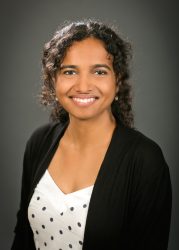
TILOS Seminar: Non-convex Optimization for Linear Quadratic Gaussian (LQG) Control
VirtualYang Zheng, Assistant Professor, UC San Diego Abstract: Recent studies have started to apply machine learning techniques to the control of unknown dynamical systems. They have achieved impressive empirical results. However, the convergence behavior, statistical properties, and robustness performance of these approaches are often poorly understood due to the non-convex nature of the underlying control problems. […]









